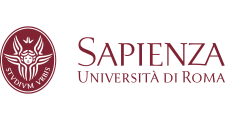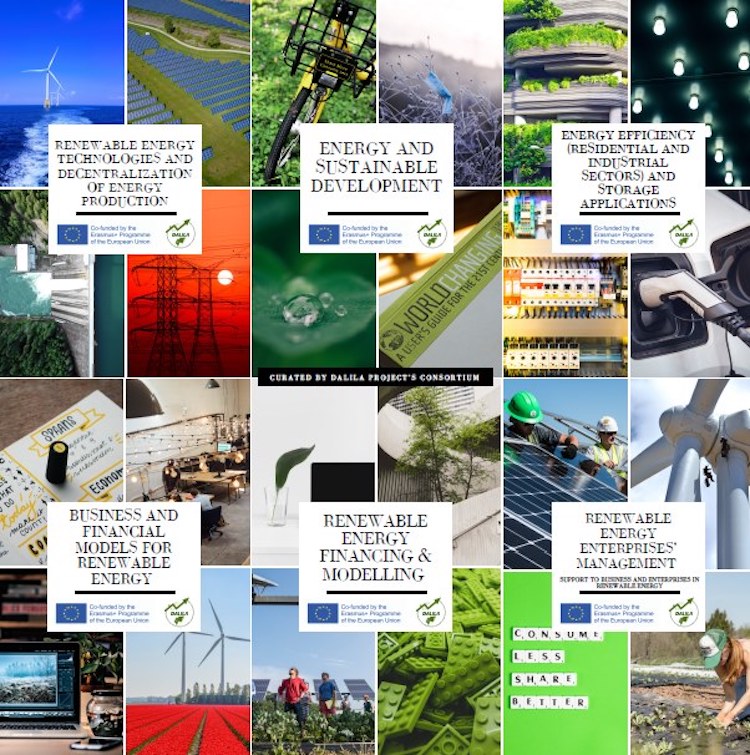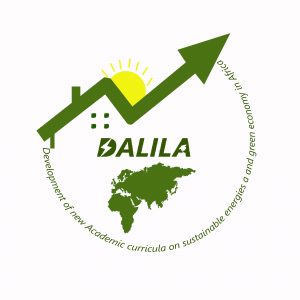DALILA – Development of New Academic Curricula on Sustainable Energies and Green Economy in Africa
DALILA is a capacity-building project funded by EACEA - the Education, Audio-visual, and Culture Executive Agency - of the European Union. The main objective of the project proposal is to establish 6 new courses on Renewable Technologies, and Green Business Creation and Development in 2 Universities in both Tanzania and Uganda.


Overview of the project

DALILA – Development of New Academic Curricula on Sustainable Energies and Green Economy in Africa is a capacity-building project funded by EACEA, the Education, Audio-visual and Culture Executive Agency of the European Union. The main objective of the project proposal is to establish 6 new courses on “Renewable Technologies” and “Green Business Creation and Development” in 2 universities in both Tanzania and Uganda.
DALILA counts on a multidisciplinary approach by offering all universities involved technological and economic subjects, both oriented towards the world of energy, the correct use and management of which is key to sustainable and green economic and social growth. The goal of the project is to be a bridge between higher education and labor market by focusing on the transfer of both theoretical and practical skills, identifying and bringing together stakeholders, creating links and synergies between companies and those who will be the professionals of tomorrow, preparing them to be the driving force of positive change for their countries.
Among the partner-countries’ main challenges are:
- scarce access to renewable energy
- few higher education institutions offering specialized courses on renewable energies, with the ones already existing being mostly at Bachelor level
- few facilities in vocational laboratories to enhance students’ specialized technical skills
- the rate of students enrolled in academic courses on Science, Engineering and Technology is low, and women representation is far from reaching 50%
Hence, the main challenge is to equip students that will enter the labor market with the abilities required to adopt innovative technologies, meet new environmental regulations, and shift to renewable sources of energy.
DALILA aims to support the modernization, accessibility, and market-oriented higher education in the partner-countries, in order to contribute to the development of a sustainable, and inclusive socio-economic growth.
DALILA addresses Uganda’s and Tanzania’s need for qualified young individuals to sustain the renewable energy industry, by implementing high education courses on Environmental Protection Technologies, and Social and Behavioral Science, with the aim to meet the local targets to increase access to renewable energy/electricity, and mitigate climate change risks and environmental exploitation. This is achieved through the collaboration between partner-universities to update existing courses and qualifications, and/or to create new fields of study to address the skills needed to meet environmental challenges, with the direct involvement of industries and local stakeholders.
Therefore, the main challenge of the project is to offer quality education, and to feed new research in order to develop a knowledge-based society that can tackle the challenges of the 21st century.
Enhancing young generations' skills in renewable energy and green economy in Tanzania and Uganda.
implementation
01/14/2020 – 01/14/2023
- 6 syllabi for courses on Renewable Technologies and Green Economy
- 4 info-days on Climate Change and Environmental Protection held by each African university, with the participation of students, professors, staff, local stakeholders
- 4 green laboratories that will be installed in the 2 Universities of both Tanzania and Uganda
- 6 teaching books, elaborated through the collaboration of professors and members of the Consortium, which will support the students’ learning
- 2 topics on “Renewable technologies and Sustainable development,” and “Business Models for Renewable Energy” will be developed for the MOOCs over the next months
- 10 videos on the project’s main topics, such as climate change, renewable technologies, green economy, opportunities of employability in the green sectors
- Enhanced awareness about the local needs in terms of climate change, clean energy, green economy, emission targets, and employability, reached among the participants to the info-days
- Improved competence of professors involved in the project about different education systems (the Bologna process in particular) for the development of a closer collaboration between universities, mobility facilitation of students and staff, and recognition of university educational credits
The project is funded by EACEA (Education, Audiovisual and Culture Executive Agency of the European Union) in the framework of ERASMUS+ programme, KA2 Capacity Building in Higher Education.
organisation
Sapienza University of Rome offers 260 Bachelor and Master courses, 80 PhD courses, one-to-two years long lasting professional courses, and specialization schools, English-taught master’s degrees, and many English-taught single courses in various disciplines.
Two different Departments participate in DALILA project:
- DIMA – Department of Mechanical and Aerospace Engineering – aims at promoting and coordinating research activities in the field of applied mechanic, industrial and energy plants, renewable energy, energy efficiency
- Minerva LAB – Laboratory on Gender Diversity and Gender Inequality – is part of the Department of Statistical Sciences, and aims at dealing with different thematic issues and methodologies, mainly in the areas of inequality, discrimination, development, and environment and microfinance
Founded in 1303, Sapienza is the oldest university in Rome and the largest in Europe. With over 700 years of history, more than 115,000 total students, 3,300 professors, 2,200 officials, technicians, and librarians in addition to 1,600 employees in its university hospitals, Sapienza is the largest university in Europe.
Its mission is to contribute to the development of a knowledge society through research, excellence, quality education, and international cooperation. The most influential university rankings worldwide place Sapienza among the first Italian Universities for its research, educational quality, and international dimension. In the rankings for individual subjects, our University is a reference point for many disciplines.
European Partnership:
Spain– University of Cadiz, INOMA
African Partnership:
Tanzania – State University of Zanzibar, University of Dodoma, Sahara Ventures
Uganda – Uganda Martyrs University, Uganda Christian University


